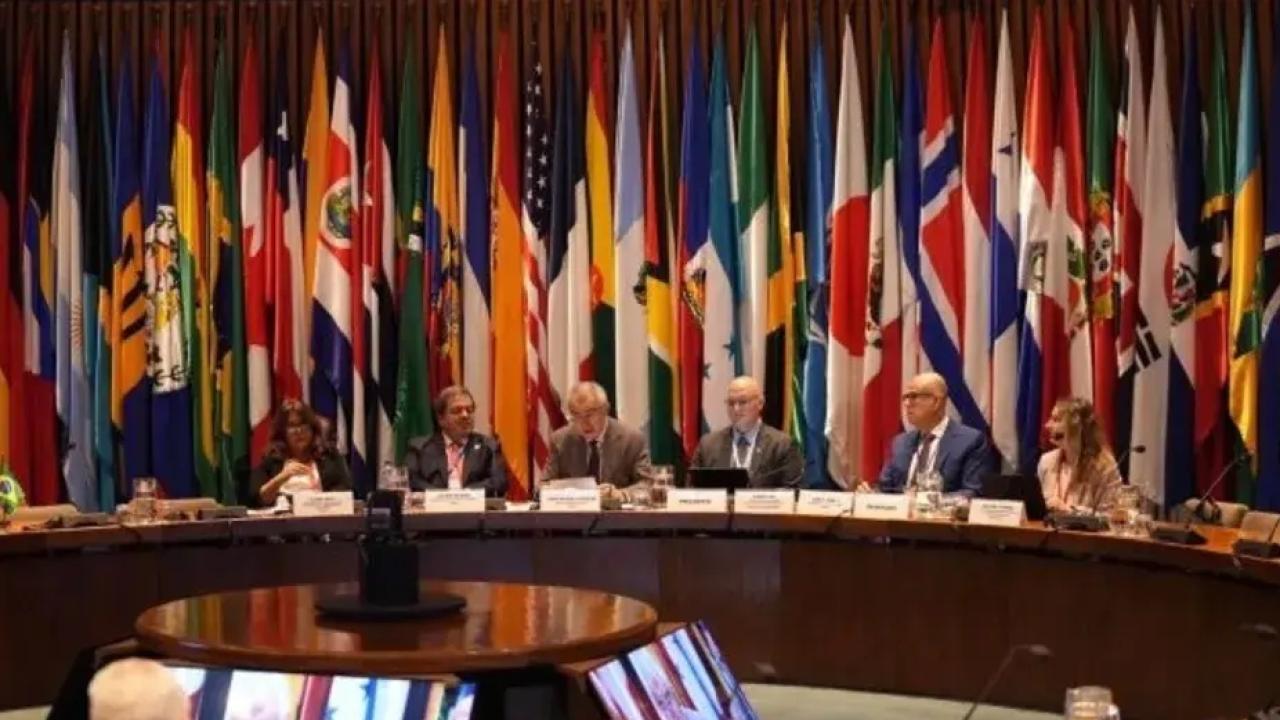
The Executive Secretary of ECLAC has called for progress in the areas of governance; institutional capacities (technical, operational, political and prospective); spaces for social dialogue; and in the political economy of transformations.
Latin America and the Caribbean will only be able to build a more productive, inclusive and sustainable future by overcoming the trap of low institutional capacities and ineffective governance.
This was confirmed by representatives at the opening on Wednesday of the Thirtieth Meeting of the Board of Directors of the Regional Planning Council (CRP) of the Latin American and Caribbean Institute for Economic and Social Planning (ILPES), which will be held until Thursday, November 28, 2024, at the headquarters of the Economic Commission for Latin America and the Caribbean (ECLAC) in Santiago, Chile.
The two-day meeting was opened by the Executive Secretary of ECLAC, José Manuel Salazar-Xirinachs, and the Minister of Economy, Planning and Development of the Dominican Republic, Pável Isa, in his capacity as President of the CRP of Ilpes.
During his speech, the highest authority of ECLAC stated that Latin America and the Caribbean is mired in a development crisis characterized by the traps of low capacity to grow and transform productive systems; the trap of high inequality, low social mobility and weak social cohesion; and the trap of low institutional capacity and ineffective governance, which affects the implementation of public policies and the transformation processes in the region.
"In this context, I welcome the decision of the Regional Planning Council to begin negotiations on a regional agenda for planning and public management governance for sustainable development in Latin America and the Caribbean," he said.
This agenda is made up of four axes, namely governance, institutionality and social dialogue; the future dimension and anticipatory governance; coordination to achieve coherence and comprehensiveness in public policies; and evaluation, public value and the establishment of a culture of continuous learning.
"This process will require greater networking, mutual learning and collaborative work among the different actors. "It is encouraging to see that at least 19 of the 33 countries in Latin America and the Caribbean, along with more than 65 territories, have formulated long-term plans or strategies with horizons extending to 2030 or even 2050," said José Manuel Salazar-Xirinachs.
The ILPEs Regional Planning Council is a space for intergovernmental technical-political dialogue in which planning authorities exchange experiences and knowledge on how to face development challenges and create a culture of the future at the national and subnational levels, and on how to strengthen public management and enhance the capacities of the State.
In this context, José Manuel Salazar-Xirinachs has called for progress in the areas of governance; institutional capacities (technical, operational, political and prospective); spaces for social dialogue; and in the political economy of transformations.
"Time is running out, all time, political, climatic and natural. We are obliged to respond, for our people and for our planet. Through planning and management of public policies we can contribute to providing effective responses," said the Dominican minister.
During the meeting, Pável Isa will present for consideration by the Board of Directors the document Guidelines for the development of a regional agenda for governance of planning and public management for sustainable development in Latin America and the Caribbean, which seeks to take concrete steps in this direction.









